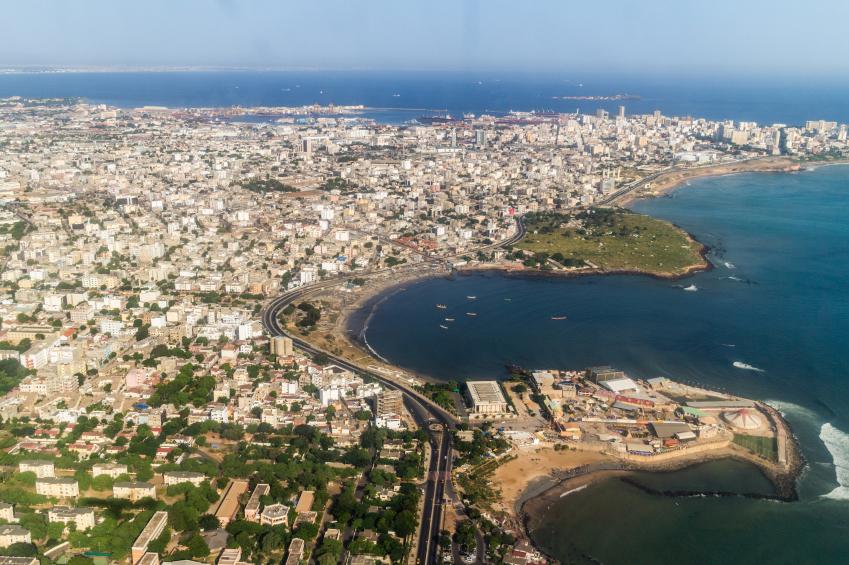The World Health Organization (WHO) today called Senegal's Ebola outbreak ended and praised the country's efforts, but in the same breath the agency noted that hundreds more cases have surfaced in the past few days in the hard-hit countries of Guinea, Liberia, and Sierra Leone.
Senegal's only Ebola case surfaced in late August. The government has looked for additional Ebola cases and found none in 42 days, or twice the 21-day maximum incubation period, since the patient recovered, the WHO said in announcing the end of the outbreak there.
But the WHO also reported today that the epidemic in the three affected countries has expanded to 9,191 cases and 4,546 deaths, or 276 more cases and 99 more deaths than the numbers reported on Oct 14.
Senegal commended
The case in Senegal was confirmed on Aug 29 in a man who had traveled to Dakar from Guinea, where he had had contact with an Ebola patient, the WHO noted.
The Senegalese government responded quickly with a plan that included identifying and monitoring 74 close contacts of the patient, prompt testing of all suspected cases, increased surveillance at the country's entry points, and nationwide public awareness campaigns, the WHO said.
The government had help from the WHO, the US Centers for Disease Control and Prevention, and Medecins sans Frontieres (MSF).
The Ebola patient tested negative for the virus on Sep 5, signifying his recovery, and returned to Guinea Sep 18, the WHO said. Although the outbreak is over, Senegal's location makes it vulnerable to additional imported cases of Ebola, the agency observed.
Health workers stricken
Today's WHO update said 423 healthcare workers have been hit by Ebola so far, and 239 have died. The numbers include one case in Spain and two in the United States.
Yesterday the United Nations Mission for Emergency Ebola Response (UNMEER) issued an "External Situation Report" covering a wide range of developments in the epidemic. "It is clear that the situation in Guinea, Liberia and Sierra Leone is deteriorating, with widespread and persistent transmission of EVC [Ebola virus disease]," it says.
Among political and economic developments, the report says healthcare unions in Liberia called off a strike related to Ebola, because the stoppage drew little support and most hospitals and clinics were operating normally. It also says the Liberian government plans to lay off nonessential workers now on compulsory leave because of Ebola, as a result of an apparent realization that the furloughs have not interrupted services.
In an update on Ebola treatment beds, the report says that Liberia now has 620 beds and 2,930 more planned. Sierra Leone has 346 existing beds with 1,198 planned, while Guinea has 160 beds and 260 more planned.
US-built hospital ready
In other developments, a US military official announced yesterday that US troops in Liberia have finished building a 25-bed hospital for Ebola-stricken health workers, and it should be fully operational next week, according to a Department of Defense (DoD) press release.
Navy Rear Adm. John Kirby also said that construction of other Ebola treatment facilities is continuing, with completion of the first one expected by the end of this month, according to DoD. Also, three US Navy mobile labs in the country have tested more than 1,200 samples for Ebola.
In Sierra Leone, the UN World Food Programme said today it began distributing more than 800 metric tons of food for 265,000 people on the outskirts of Freetown, the capital. In a statement, the program called the effort the largest food distribution in the country since the epidemic started.
"The aim of the distribution is to stabilize quarantined families by giving them enough to eat so that they do not leave their homes to look for food," the UN statement said.
Help from East Africa
In still other news, East African countries today announced they would send 619 healthcare workers, including 41 doctors, to help West Africa battle Ebola, according to an Agence France-Presse (AFP) report. Details were released in a statement from the East Africa Community (EAC), an intergovernmental group of five nations in the Great Lakes region of Africa. The workers will come from Burundi, Kenya, Rwanda, Tanzania, and Uganda.
Also today, the head of GlaxoSmithKline (GSK's) vaccine division said full data on an Ebola vaccine that it developed with the US National Institutes of Health (NIH) may not be available until late 2015, which may be too late to help with West Africa's epidemic, the BBC reported today.
Ripley Ballou, MD, said GSK had discussions with the WHO in March when the outbreak emerged, but the two decided against accelerating vaccine trials and opted to watch the situation instead. He said that in retrospect the decision to pursue the vaccine should have been made earlier, but finger-pointing now isn't useful.
Ballou said that after the data are gathered, several more steps will remain, including manufacturing. If the vaccine doesn't come in time to help West Africa, it's worth pursuing for use in future Ebola outbreaks, according to the BBC report. The vaccine, called ChAd3, uses a chimpanzee adenovirus as a carrier of pieces of Ebola virus genetic material.
Staff writer Lisa Schnirring contributed to this article.
See also:
Oct 17 WHO statement on Senegal
Oct 17 WHO Ebola roadmap update
Oct 16 UNMEER report
Oct 16 DoD press release
Oct 17 AFP story
Oct 17 UN World Food Programme statement
Oct 17 BBC story






















